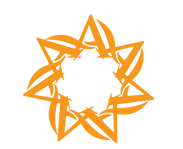According to the World Health Organization, over 20 million people are facing crisis or severe food insecurity in the Horn of Africa.
Famine has been declared in South Sudan. Food security is a serious issue in Ethiopia, Kenya, Nigeria, Somalia, Uganda and Yemen. When there is a severe lack of nutrition, the immune system is weakened and the body is more susceptible to disease. Disease is often seen between the stages of starvation and death.
WHO Estimates:
- 20% of population face extreme food shortages with limited ability to cope
- acute malnutrition rates exceed 30% for children under 5
- 2 deaths per 10 000 people, or 4 deaths per 10 000 children per day
In July 2016, Cholera was confirmed in Juba, the capital of South Sudan. According to the CDC, “cholera is an acute, diarrheal illness caused by infection of the intestine with the bacterium Vibrio cholerae. An estimated 3-5 million cases and over 100,000 deaths occur each year around the world.” Famine, disease and war lead to hundreds of dead and thousands displaced in 2016.
Since May 2016, WHO has provided treatment to over 800,000 people for Malaria in BentiuSince May 2016, . Bentiu is a camp for displaced people in South Sudan.
Aldelano Solar Cold Chain Solutions wants to help NGOs provide cold storage for food and medicine to these areas in great need.
Conflict makes it difficult for the UN, WHO and other organizations to help regions experiencing famine. Aldelano Solar Cold Chain Solutions’ mobility and solar power makes its resources ideal for regions in turmoil. The Solar WaterMaker, PowerPak and ColdBox can be brought in by air or truck.
“Everyone knows if we responded in a better resourced way and earlier on, we could reduce the suffering and save lives and it would be cheaper,” said Saeed. “As a global community we haven’t been able to [tackle] this issue of how do you address famine? How do you get the resources before it’s too late?” – Saleh Saaed, head of Disasters Emergency Committee
Aldelano Solar Cold Chain Solutions provide robust industrial-grade solar power, solar cold storage, as well as solar atmospheric generated clean water and ice. Together these products create lifesaving resources. Safety is a major concern for those on the ground rendering aid in South Sudan. Solar power provides aid workers with a greater ability to deliver aid without risking travel to procure diesel.
Our hope is to provide disaster relief organizations with:
- Solar power that can power a home or an entire village
- Industrial-grade cold storage to improve nutritional value and shelf life of food
- Cold storage for medicines and vaccines
- Clean water and ice generated from moisture in the air
As the need in South Sudan rises, our goal is to connect with disaster relief organizations and NGOs with the resources they need to provide sustainable aid.
Citations:
McVeigh, Karen, and Ben Quinn. Famine Looms in Four Countries as Aid System Struggles to Cope, Experts Warn. The Guardian, 12 Feb. 2017, www.theguardian.com/global-development/2017/feb/12/famine-looms-four-countries-aid-system-struggles-yemen-south-sudan-nigeria-somalia.
“South Sudan Infectious Diseases Rise.” World Health Organization, World Health Organization, Sept. 2016, who.int/features/2016/south-sudan-multiple-disease-outbreaks/en/.

